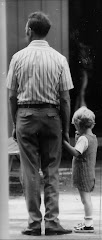Princeton Scientists Discover Proteins that Control Evolution
 Evolutionary changes are supposed to take place gradually and randomly, under pressure from natural selection. But a team of Princeton scientists investigating a group of proteins that help cells burn energy stumbled across evidence that this is not how evolution works. In fact, their discovery could revolutionize the way we understand evolutionary processes. They have evidence that organisms actually have the ability to control their own evolution.
Evolutionary changes are supposed to take place gradually and randomly, under pressure from natural selection. But a team of Princeton scientists investigating a group of proteins that help cells burn energy stumbled across evidence that this is not how evolution works. In fact, their discovery could revolutionize the way we understand evolutionary processes. They have evidence that organisms actually have the ability to control their own evolution.
Let's get a few possible misconceptions out of the way first. The Princeton group, composed of researchers Raj Chakrabarti, Herschel Rabitz, Stacey Springs and George McLendon, haven't proven that intelligent design is a valid scientific theory. Nor are they claiming that DNA is making a set of conscious decisions about growing extra legs or wings (though that would admittedly be cool).
What they are saying is that evolution is not entirely random, as Darwin believed. The researchers were tinkering with a set of proteins forming the electron transport chain, a system that regulates energy use in cells. They discovered that the proteins were correcting any imbalance imposed on them through artificial mutations, constantly restoring the chain to working order. A mathematical analysis revealed that these proteins seem to make these minute corrections all the time, steering organisms toward evolutionary changes that make the creature fitter.
Said Chakrabarti:
The discovery answers an age-old question that has puzzled biologists since the time of Darwin: How can organisms be so exquisitely complex, if evolution is completely random, operating like a 'blind watchmaker'? Our new theory extends Darwin's model, demonstrating how organisms can subtly direct aspects of their own evolution to create order out of randomness.
Their work seems to confirm ideas held by Darwin's colleague Alfred Wallace, who co-discovered the theory of evolution. Wallace believed that life forms undergoing natural selection could adjust their evolutionary course "exactly like that of the centrifugal governor of the steam engine, which checks and corrects any irregularities almost before they become evident." In other words: Wallace believed that organisms had a kind of evolutionary feedback control mechanism.
Added Rabitz:
What we have found is that certain kinds of biological structures exist that are able to steer the process of evolution toward improved fitness. The data just jumps off the page and implies we all have this wonderful piece of machinery inside that's responding optimally to evolutionary pressure.
The researchers put together a paper recently published in Physical Review Letters, which suggests that control theory could help explain evolution. This is likely to spark a lot of debate. But Chakrabarti says their ideas fit neatly within theories of evolution:
Biological change is always driven by random mutation and selection, but at certain pivotal junctures in evolutionary history, such random processes can create structures capable of steering subsequent evolution toward greater sophistication and complexity.
In other words, organisms are evolving ways to evolve better.
















No comments:
Post a Comment